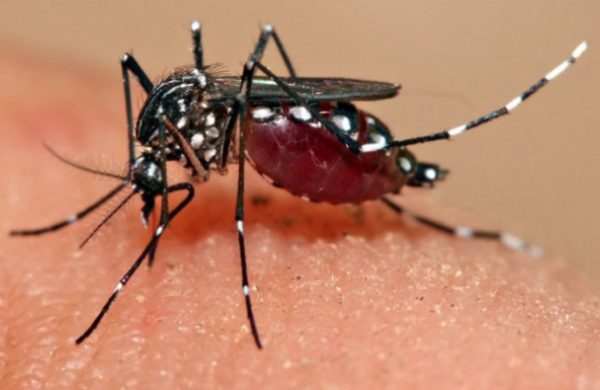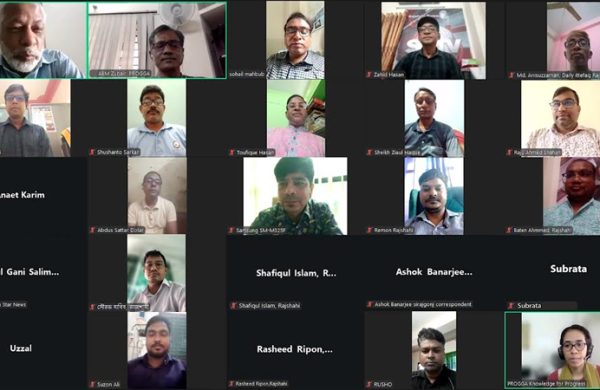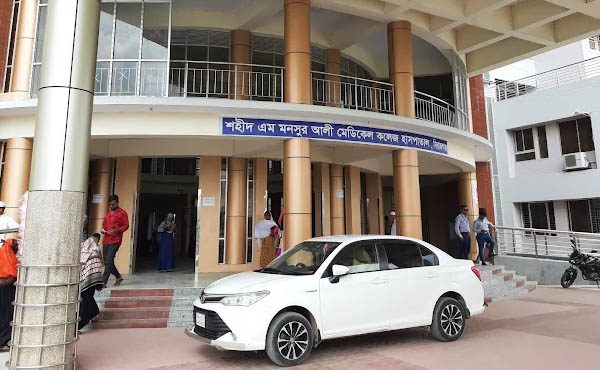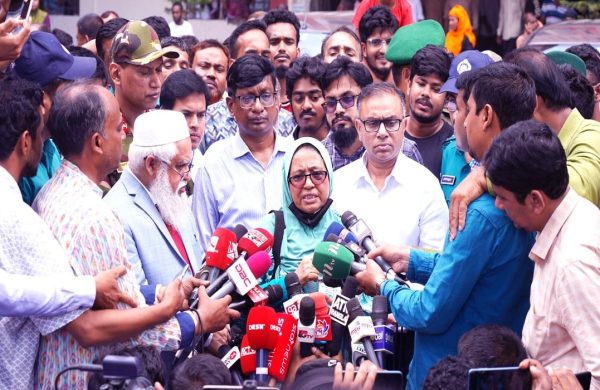Effective Tax on Cigarettes: World No Tobacco Day Expectations
- Update Time : Friday, May 31, 2024

Dr Atiur Rahman
(Former Governor of Bangladesh Bank)
Once again, the ‘World No Tobacco Day’ will be observed on 31 May 2024. The theme for this year is ‘protecting children from tobacco industry inference’. This theme is of special significance for Bangladesh. While incidence of tobacco use in Bangladesh has been declining over the years- the youth of the country is yet to be fully protected against the harms of tobacco use. Latest data shows that 14% of the 15 year or older citizens of the country are using cigarettes.
Additionally, 39 to 44% of adult citizens are becoming victims of passive smoking. Every year 161 thousand people die here due to diseases caused by tobacco use. Bangladesh is among the countries with highest rates of tobacco use.
All these imply that strong efforts are required to protect our youth from the evils of tobacco.
Globally the misinformation spread by the tobacco industry is seen as a major impediment to stopping children and/or youth from using cigarettes. The use of cigarettes has declined all over the world due to increasing social awareness.
This is true for Bangladesh as well. But still society is yet to be completely tobacco free. Cigarette companies are resorting to nefarious promotional campaigns to boost their sales. Because of misinformation spread by these companies- policymakers are often being misdirected. This has been happening in Bangladesh too. Our honourable Prime Minister has given the directive to realise the vision of ‘tobacco free Bangladesh’ by 2040. In alignment with that directive- cigarette prices have been being increased every year when the National Budget is proposed. While these price increases may appear to be positive moves, in reality these slight price increases annually are simply not enough to realise the honourable Prime Minister’s vision.
Every year, right before and after the National Budget is proposed- we witness the cigarette companies claiming that the increase in cigarette prices will be causing harm to the industry. However, if inflation is taken into account, then these price increases will appear to be simply inadequate. In fact, cigarettes are becoming increasingly more affordable over the recent years. The cheapest cigarettes, i.e., the low-tier cigarettes, constitute more than 70% of all cigarettes sold. Over the last five years, the price of a ten-stick pack of low-tier cigarettes has increased from BDT 37 to BDT 45 (i.e., a 22% increase). But the Consumer Price Index (CPI) value has increased even more (by 32%). This means in comparison with all the other products consumed, low-tier cigarettes have become 10% cheaper over the said period. Since low-tier cigarettes are the cheapest, the youth and the low-income users are the primary customers for these cigarettes. This means, cigarettes have been made more accessible to our youth over the recent years. Prices of cigarettes belonging to the other higher tiers have also been increased minimally, and hence- they have also become more affordable to the cigarette users.
The call for this year’s ‘World No Tobacco Day’ is emphasising on stopping ‘tobacco industry interference’. The nefarious marketing strategies of the cigarette companies are usually understood as their ‘interferences’. But their moves to communicate slight increases in cigarette prices as big blows to the industry- is also a tool that they have been using frequently to safeguard their interests. Such false claims may have often misdirected our policymakers, which in turn has been making harmful cigarettes more accessible to our youth. Given this backdrop, when celebrating this year’s ‘World No Tobacco Day’, we must also emphasise effectively increasing cigarette prices.
Anti-tobacco civil society platforms have come up with a comprehensive proposal for effectively increasing cigarette prices in the National Budget for the coming fiscal year. These civil society platforms have proposed to increase the price of low-tier cigarettes by 33%. That is, if this proposal is realised, the price increase of low-tier cigarettes will be higher than inflation even if the annual average inflation is more than 10%. Consequently, low-tier cigarettes will become less affordable. They have also proposed to increase the prices of medium-, high-, and premium-tier cigarettes by 19%, 15%, and 13% respectively.
Another misinformation which is frequently propagated by the tobacco industry is about the revenue government gets from cigarettes sales. They claim that if cigarette sales drop due to increasing prices- the government may lose a significant share of revenue it gets from cigarettes sales. However, the truth remains- government can in fact earn more revenue if cigarette prices are increased effectively and higher duties are imposed based on those increased prices.
This is why the anti-tobacco platforms are advocating increasing the supplementary duty on low-tier cigarettes from 57% to 63%. If this is realised, then even after reduction of cigarette sales (owing to price increases)- the government will be able to collect more revenue from cigarette sales. The anti-tobacco activists have not proposed increases in supplementary duty ratios for the higher-tier cigarettes. But still, if the prices of those higher-tier cigarettes are increased as proposed, the government will be able to earn additional revenue. On an aggregate basis, if the proposals are realised, then the government will be able to collect 28% higher revenue (approximately BDT 10 thousand crore) from cigarette sales in the next fiscal year. More importantly, realisation of these proposals will reduce cigarette use, discourage the youth from smoking initiation, and save numerous lives in the long run.
To safeguard Bangladesh from cigarettes, we must make producing cigarettes difficult along with imposing taxes on them. While serving as the Governor of Bangladesh Bank- I managed to stop the flow of low-cost easy-access loans for tobacco cultivation. For that the WHO awarded Bangladesh Bank with a special recognition in 2012. This year, our Ministry of Railways is expected to get similar recognition (from the WHO) for their efforts to prohibit smoking on public transport. All these indicate that a strong social movement is present in Bangladesh to reduce cigarette use. But this social movement needs to be complemented by the government’s revenue policy, i.e., the National Budget. That is why we are expecting effective cigarette taxation proposals to be reflected in the budget for the next fiscal year.
_____________________________________________________________
The writer is an Emeritus Professor for the University of Dhaka and former Governor of Bangladesh Bank


















